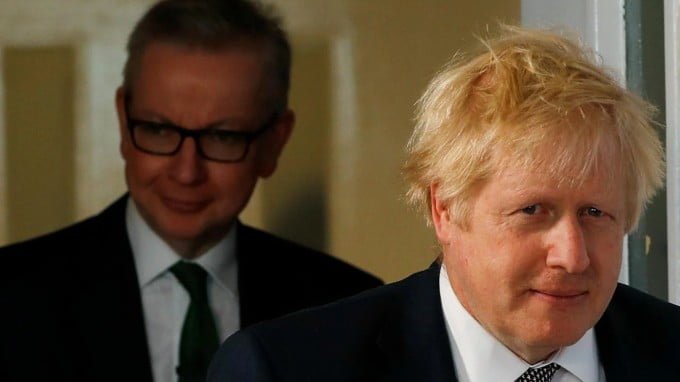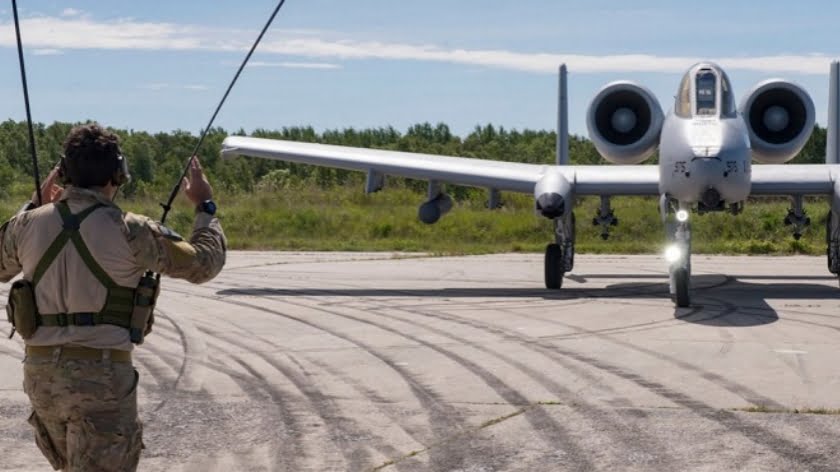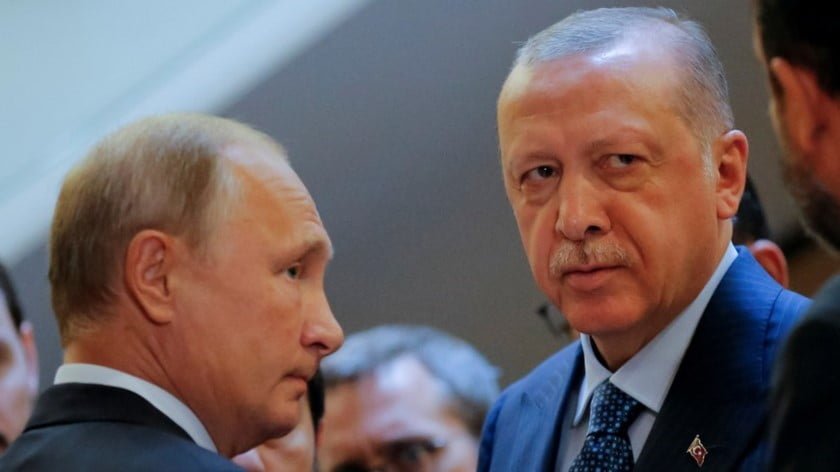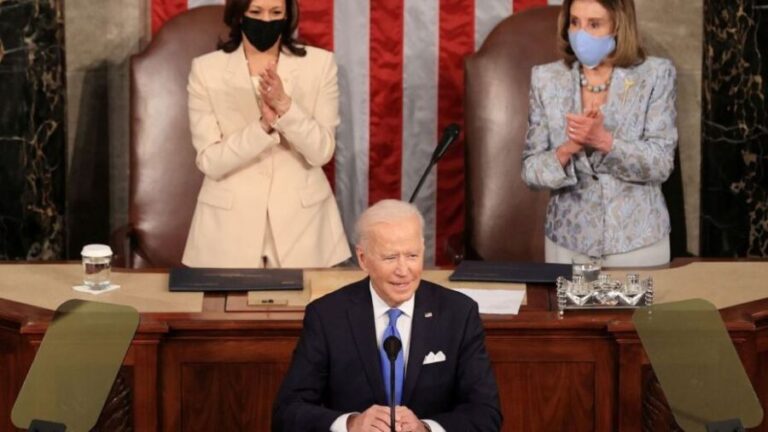Damascus Behind the Kremlin Wall
The central event of the G20 summit in Hamburg was the meeting between Putin and Trump. The Russian and American presidents, among other things, agreed on the situation in southwest Syria.
The heads of the Russian Federation and the USA did not discuss the crisis in the Persian Gulf after the Saudi Arabia, the UAE, Egypt and their allies’ ultimatum to Qatar. Meanwhile, their consequences threaten to destroy the GCC. We will look at the situation, currently in the Arab world, through the example of Syria and the Qatar crisis in relation with the American-Russian relations, based on materials from the expert Y. Scheglovin of the Middle East Institute.
The Collapse of the Arab Union
Qatar’s refusal to fulfil the ultimatum presented to it by its neighbours may bring the dissolution of the Cooperation Council of Arab States of the Gulf (GCC – Bahrain, Qatar, Kuwait, the United Arab Emirates, Oman, Saudi Arabia). The KSA, UAE and Egypt could have simply defined their demands: (1) to cease disturbing them in Libya, where pro-Qatari Islamists do not allow Egypt and the UAE’s creature Kh. Haftar to seize power in the country, (2) to not sponsor terrorist campaigns in Egyptian cities and the Sinai, which the Egyptian forces are unable to oppose, (3) to re-orient the television channel Al-Jazeera towards the support of Saudi and Emirati leadership in the Arab coalition in Yemen, (4) reduce construction activities of military bases in the Horn of Africa region and close two successful projects on the spread of influence in the Muslim world: the organisation Muslim Brotherhood and the banned in the Russian Federation Islamic State (IS). The latter disturb the KSA’s similar project, Al-Qaida, and the Yemeni Islah party, equivalent to the Muslim Brotherhood, about which Riyadh fell out with Qatar, and now is trying to restore relations, in order to finish the disastrous campaign in Yemen. Riyadh, Cairo and Abu Dhabi are losing the race for leadership in the Middle East and North Africa to Doha and Ankara. Hence the reaction in the form of imposed sanctions on Qatar.
On July 4, Doha transmitted through Kuwait its answer to the ultimatum from the KSA, the UAE and Egypt, and they, in turn, took a two-day pause to study it. There are no signs in Qatar’s answer about concessions: Doha expressed the strengthening of relations with Iran and accelerated the deployment of Turkish troops according to the joint defence treaty with Ankara. The list of demands from the authors of the ultimatum about the Turkish issue was initiated by Egypt and the UAE; Saudi Arabia went in reluctantly. Thus, the assailants made a strategic mistake by including Ankara in the ultimatum, which emboldened Qatar. Why was this done by Cairo is understandable, but what were they thinking in Riyadh is a mystery, since it is through Turkey a large part of the supplies for pro-Saudi militants in Syria pass through. Either the Saudis have decided to close the Syrian project, or the tension in the struggle between them and the Turks for exclusive dominance over the rebels in the northern Syria in Idlib reached a climax.
As for the GCC, it in fact does not exist, even if we must only talk about economics. This alliance is still unable to adopt a single VAT, has problems with customs laws, no agreed procedure for taxation, far from creating any common electric grid… And even from a political point of view Qatar is not the only problem in the union. Let us remember the recent fall out between the KSA and Oman about its “pro-Iranian position” in the Yemeni conflict. Then Riyadh threatened Oman with expulsion, but the UAE and Kuwait did not support the Saudi Arabian move. Meanwhile the relationship between the UAE and the KSA are far from ideal. The breakup between them occurs in Yemen and Libya, regardless of the current solidarity position on Qatar. Thus the disintegration of the GCC is close at hand.
Dead-end in the Interests of Moscow
On July 7, Saudi Arabia, the UAE, Bahrain and Egypt issued a statement, in which they accused Doha of undermining the diplomatic settlement of the crisis. The Arab quartet insists that the Qatari leadership’s irreconcilable position confirms their ties with terrorists. Doha is one of the main architects and sponsors of IS. However Riyadh’s similar efforts in supporting Al-Qaida is beyond a doubt. The quartet noted that Doha continues to undermine the stability in the region, sabotaging Kuwait’s efforts in the resolution of the crisis and rejects the imposed demands on the settlement. This emphasizes that Qatar is an integral part of the Persian Gulf region and in the Arab world as a whole. In this regard, we will note that in addition to the new economic constraints, which will not be effective, the signatories cannot apply different methods of pressure on the situation. The Turkish military, landed in Qatar in accordance with the agreement on the military base and mutual defence, removed from the agenda the military solution to the crisis. However, without that, none of Qatar’s opponents would dare go to war because of their own weaknesses, as well as the presence in Doha of the US troops’ regional command.
Doha’s political resistance is based on, in addition to the alliance with the Turks and the neutrality of basic political heavy weights, on two basic principles. Firstly, Qatar is a big exporter of liquefied natural gas in the world; for example by 2024 it will increase the LNG production volume to 100 million tons per year. The General Director of the government oil and gas corporation Qatar Petroleum Sherida S. al-Kaabi announced this. In the presence of this factor, the trade and economic restrictions of the quartet will create for Qatar only a temporary discomfort and nothing else. Secondly, the USA, as is said, stood above the fray and took only token steps to address the crisis. The American administration does not want to get involved in the settlement of the conflict in the Persian Gulf and calls for its resolution by the countries of the region. The US State Department announced this on July 5.
Washington, having concluded large arms contracts through lobbying with the KSA and with Qatar, merely watches that the outcome of their dispute maintains the United States’ interests. The formulation of such a position, involving the role of observer and arbiter, is the work of the pro-Qatar lobby, which the clan of the wife of the former Emir of Qatar, the mother of the current Emir, Sheikha Moz has intensified in recent times. In conjunction with the neutralised main opponent of the current government, the former Premier of Qatar H. bin Jassim bin Jaber, the question of political stability of the current Qatari regime was decided. This means the continuation of the cold war between the participants of the conflict as a minimum in the medium term. Doha entrenched its positions, and time is on its side, and the attacking quartet cannot yield without losing face. On the face of it, it is a classic dead-end, and for Russia, with the participation of the main parties to the conflict in the Syrian civil war on the side of Assad’s opponents, it is more than timely and beneficial.
Sovereign Zones
Russia, the USA and Jordan have agreed on the creation in south-western Syria as of July 9, Damascus time, of de-escalation zones. It will include the country’s three southern provinces: Dara’a, al-Quneitra and Suweida. That preparatory work was completed on July 7, according to the Minister of Foreign Affairs of Russia, S. Lavrov as a result of the meeting of the presidents of the Russian Federation and the USA on the side-lines of the G20 summit in Hamburg. He reminded that the Russian Federation previously with Iran and Turkey agreed in Astana on the creation of four de-escalation zones on the Syrian territory. In this case, in both agreements, the talk is of the southwest of the country.
The American State Secretary of the USA R. Tillerson commented on the negotiated agreements, calling them the “first sign that the USA and Russia are capable of working together in Syria”. The head of the State Department expressed the opinion that this “first successful experience” may be “expanded to other regions”, while noting that he did not know how sustainable is the new cease-fire. However, according to him, Moscow is just as interested as Washington that Syria stabilised, remained whole. The agreement stipulates that Russia and the USA are committed in securing the cease fire by all factions based in the de-conflicting zone in south-western Syria, and humanitarian aid access, and establish contacts between the local opposition and monitoring centre, which was created in the capital of Jordan. The security around the zone will be provided by the Russian military police in coordination with the USA and Jordan.
Thus, the talks at the negotiations was first of all about what is vital for Washington and, in principle, are of interest to Moscow. They agreed about trying to legalise the zones of influence of the parties to the conflict the borders under their control on the Syrian territory. Moscow will press this through the Syrian government forces, units of Shia militias and, to a smaller degree, Hezbollah groups; Washington through its own forces, units of Jordanian Special Forces and loyal opposition groups, prepared in training camps. There are also Bedouin tribes, traditionally living in Jordan and Syria. Part of them already have reconciled with Damascus, another part is poorly controlled by Amman, despite the belief that they are totally controlled by the Secret Services of the Kingdom.
Thus, a complicated status quo is being consolidated: the Americans cannot move on the border of Jordan and Syria perimeter and expand the borders of its influence towards Deir ez-Zor (including the fact that the Syrian Shia formations, controlled by Iran, managed in a number of areas to approach the borders of Jordan and Iraq and block this expansion). The Russian side will be trying to convince the Iranians to eliminate the need for the practice of offshore operations in this zone on the Syrian territory, where the loyal to the USA groups are based. The Americans abandon air strikes against Syrian government forces and their allies. Therefore the situation in the south is freezing. The Russian military police in any case becomes a wall between the pro-Iranian and pro-American forces. Obviously, the Russian battalions from Chechnya and Ingushetia will quickly arrive in Syria.
What do both agreement parties gain? The USA gains guarantees of inviolability of its bridgehead in the south, which allows it to relatively quietly prepare the loyal opposition groups. Washington considers the creation and protection of the bridgeheads in the south and north of the country its main task in acquiring support “on the ground” and gradually increasing their influence on the Syrian field. Russian and her allies gain opportunities for stabilising the situation in the Syrian south, which allow the expansion of zones of control in the centre and north in the future, especially in the Deir ez-Zor region. At the same time, due to the armistice with some opposition groups and Bedouin tribes, a neutralisation base is created in this pro-Saudi region of radical Islamist groups of the Jabhat al-Nusra type (banned in the Russian Federation). Most likely, the USA agreed if not for joint action in this direction, at least for neutrality. The optimal case would be to oust the Islamists from the American responsibility area, forcing them to take part in the fighting against the radicals.
Moscow, by all appearances, refused to “speak with one voice” with Washington in the resolution of the Kurdish question in northern Syria with the organisation’s goal of de-escalation zones in Idlib. The Kremlin distanced itself from Ankara’s suggestion to take the option of creating under the American auspices zones of Kurdish control in northern Syria, including Raqqa, but firmly objected to the offensive of pro-Turkish forces on the Kurdish Afrin. This was supported by the head of the State Department Tillerson, declaring that Moscow, Washington and Amman consider the south-western part of Syria “more manageable” in comparison with other areas of the war-torn country. The failure of Ankara’s pressure in this issue allows the imposition on the USA the burden of resolving contradictions with Turkey (Erdogan started quickly to look for meetings with Trump after his negotiations with Putin), which do not have resolutions because of fundamental differences between Ankara and Washington on the Kurdish question. Which by itself appears a hopeful guarantee that in northern Syria a Turkish-American alliance can develop.
The National Security Advisor of the US G. McMaster declared that during the meeting between Presidents Trump and Putin no problems were resolved. However, the main thing was done: Washington out of necessity was forced to an agreement, albeit local, with Moscow. And in this situation it managed to concentrate the main package of preliminary approvals in those areas that meet its interests.
“Shamefaced” Washington
American experts and the MSM, describing the outcome of the negotiations in Hamburg, claim that the administration of the President the USA made substantial concessions in Syria. Washington is ready to acquiesce to the fact that B. Assad will continue to govern the country. Washington is not against the deployment of the Russian military police in Syria and agreed with the necessity of creating of security zones in Syria. Thus, very few actors, those capable of influencing the situation in Syria, were interested in the opinion of the Americans about who will be heading this country, and they could not affect it at all. Putin closed the question about the presence of Assad in power two years ago when Moscow’s position was expressed on this matter. It is a constant, which the USA has to take into account in any consultation. The American, and in general Western, diplomacy takes for granted the fact that it can not affect in any way, and gives it the manifestation of its good will and compromise, which it had to go for the sake of progress of the negotiations.
As American experts point out, Trump was willing to make such concessions in order to… not allow ISIS to capture large parts of the Syrian territory. This sounds extremely naïve, considering that ISIS had already lost more than 70 percent of control in Syria and was rapidly losing its military capabilities. And no thanks to the US for the fight against the Islamists! If not for the Russia military operation, which started in the fall of 2015, Syria would now be a battlefield between the jihadist groups, and the USA would have stayed in the role of sideline observer. Thus the Americans decided to liberate Syria from ISIS, clearly forgetting about the pro-Saudi groups with at its head Jabhat al-Nusra, which is on the list of terrorist organisations of the Department of Justice of the USA. It is useful to frequently remind Washington of this.
The American’s “prudery” in relation with pro-Saudi radicals in Syria and concealment of Saudi sponsorship of international jihadism shows that by giving a bribe to Trump in the multi-billion weapons contract, which is completely unnecessary for securing the defence of the KSA, Riyadh considered that their hands were untied for actions in the region at its discretion. Including the American security assurances in force against Iran. The result is a deep crisis with Qatar. In any case it is “the tail wagging the dog”. Agreeing to such a deal for pulling over the American military industrial complex to his side, Trump will carefully chose his words, in order to explain the destructive actions of the KSA, including the Syrian issue.
The same demonstrative “naivety” of American diplomacy we observe in the issue of “security zones”, the establishment that the Americans have agreed. We will note that to influence their creation and operation, they for the most part can be near Damascus or Gouta as well as Idlib. The Americans’ consent to dialogue is due to their obvious weakness in available areas of support in Syria. The Kurds, supported by them, are limited to the traditional boundaries of their residence. Any of their movements inside the country automatically raises a united outcry from all Arab forces, regardless of political and ideological differences. The fighters trained by the USA in Jordan are frankly weak and are not in a state to act in Syria on a nationwide level of magnitude. The question is to keep them as a valid force, if not real, then at least as suitable to demonstrate to the US Congress and the American voters where the more than considerable sums allocated for their training were spent.
The basis of Trump’s “concessions” to Putin is the interests of the US. Under the guise of connectivity to areas of de-escalation the American forces are getting ready not only to strengthen their bridgeheads on the Jordanian and Iraqi borders, the north of the country, but to secure them with the help of an official status. They are trying on the quiet to push through their status of no-fly zones and the idea that the “control of territory not under the control of Damascus” will be carried out by the loyal to Washington armed opposition, the same “Forces of Democratic Syria”, as well as the American conditionally loyal supporters Jabat al-Nursa in view of the strategic partnership between the US and Saudi Arabia. The creation of these “no fly-zones” mean to the US and the KSA the formation of “oases” for the strengthening and deployment of radicals under their control, which the ultimate goal is not peaceful co-existence with the current regime in Damascus, but its overthrow.
It is necessary to remember this without any illusions about the American initiatives. However, the fact that Russia has forced the USA to negotiate on Syria is also a fact. Just as Ankara firmly opposes Washington and the Kurds it supports, and Riyadh quarrelled with Doha and Ankara. And all this definitely works to Moscow’s advantage.
By Evgeny Satanovsky
Translated by AlexD
Source: VPK via South Front







